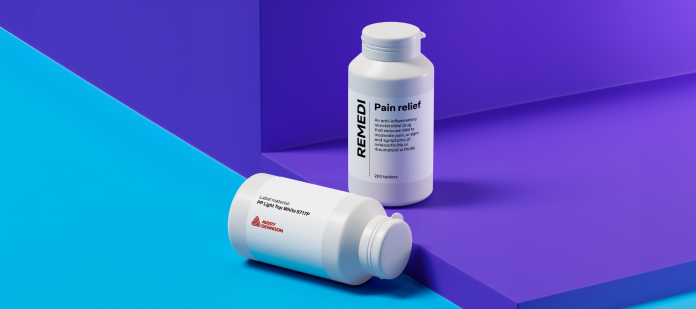
To accelerate its step toward sustainability in the pharmaceutical labeling space, Avery Dennison has decided to embrace recycled PET (rPET) liners across its pharmaceutical portfolio by the end of 2025. With this transition, all PET30 and PET23 liners will be converted to rPET grades with 30% post-consumer recycled material, the company said in a post on its website.
The company says its customers will directly benefit as this is a tangible way to achieve their own sustainability goals. This shift helps reduce scope three emissions and positively impacts their carbon footprint, it said.
According to the post, over recent years, the company has developed expertise and achieved progress in incorporating rPET liners across some of its portfolio. “And the integration of rPET liners with our S692NP adhesive, highlights our forward-looking approach to sustainable labeling solutions tailored for the pharmaceutical industry,” it said.
This strategic shift is driven by the need to reduce pharmaceutical packaging’s environmental footprint proactively. Recognizing the industry’s understandably cautious stance towards change, particularly when patient safety is at stake, Avery Dennison says it designed a transition strategy that ensures a smooth, secure, and hassle-free process for the customers. In alignment with its Pharma Change Management protocols, it is providing a 12-month period for the necessary validation processes.
In addition to these measures, the company is offering the AD Circular program, which complements its move to rPET30 liners. AD Circular is Avery Dennison’s service for recycling used filmic and paper label liners in European countries. The company is implementing a new way to enable the recycling of labels and packaging (regardless of their origin) and advancing the use of recycled materials.
By completing this transition, Avery Dennison anticipates generating substantial annual savings: approximately 532,000KG of CO2 and 2,266,000 liters of water (Based on the 2023 sales volumes and calculations from the Carbon Trust tool version January 2024).
Avery Dennison says its rPET liners are suitable for demanding applications within the pharmaceutical industry, including syringes, eye drops, insulin pens, and security seals.
Key features
There is no impact on the conversion or label dispensing process, ensuring operational continuity for customers. The 30% PCR layer is encapsulated between two outer layers of virgin material. The silicone coating, crucial for consistent label application, retains quality and performance. In addition, it has certification under the Global Recycled Standard (GRS).








